Interfaith
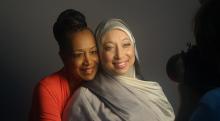
Alana Raybon was baptized as a child in the African Methodist Episcopal Church. She attended youth activities and vacation Bible school and even sang in the choir. But today, she wears a headscarf and worships Allah.
Her mother, Patricia, describes Alana’s conversion to Islam as “heartbreaking,” and yet, they’ve found a way to love each other despite the faith divide. They share their struggles in Undivided: A Muslim Daughter, Her Christian Mother, Their Path to Peace, a book that begs a vital question: how would you respond if your Christian child converted to Islam?
Religion News Service talked to them about their experience. Some answers have been edited for length and clarity.
Q: Alana, tell us the story behind your conversion.
Alana: I developed a love and reverence for God in church, but I couldn’t connect with the idea of the Trinity. I didn’t let my mother know about these feelings, and patiently waited to feel a connection to this concept. In my 20s, I began searching for spiritual enrichment and came upon the concept of Islamic monotheism — the idea of God being one, solely, without any associate. I became inspired to learn more about Islam and converted to the faith as a junior in college and called my mother to share the news.
Q: How did you react, Patricia?
Patricia: I was devastated. A daughter can call from college with all sorts of news — forgetting her mother is still dealing with her own life. In my case, my husband and I had hit a low point in our marriage, my widowed mother had come to live with us, my other daughter was closing a business, and my husband had a cardiovascular emergency. In all of that, Alana called from college to say, “Mom, I’m a Muslim.” Emotionally, I had run out of steam. So I thanked her for calling, asked how her classes were going and if her car was running OK. Then after a few minutes of such talk, we hung up. Looking back, it was my oddest reaction ever to a phone call.

I had the sense, as a child, that God’s goodness and mercy would only follow me all of the days of my life if I was “good” and Christian. And I had the sense that good and Christian was a narrow way.
This meant two things. First, only “good” people, loving and kind people, people who had not erred or strayed or made mistakes or broken the law or never “back-slid” were the sheep worthy of grace and mercy. Second, only Christian people were in the fold. Not Jews, Muslims, Buddhists, Sikhs — no, the steadfastly loving God had only space for those of us who accepted Jesus and our Lord and Savior AND who had lived sinless lives.
My child-like sense of “good” shifted when I was a teen serving as an elder in the Seventh Presbyterian Church in Chicago. Being up close and personal with my pastor, the late Rev. Oliver Brown, III and the adults around the table were first- hand lessons of the wide-open space of God’s love in Jesus Christ.
These good people — ordained people — were flawed and funny. They fussed and fought. They forgave each other, as God forgave them. My idea of good stretched and breathed and exhaled judgment and inhaled, experientially, that only God is good, that God in Jesus Christ shows this goodness in a particular way, and that all of God’s people are flawed and loved.
As a young adult before seminary, living life in the world, working, loving, breaking up, making up, having growing pains about identity and purpose and vocation, my spiritual muscles strengthened around the concept of the good shepherd who would love me enough to come and get me if I wandered.
Jesus is the ideal shepherd, the model shepherd, the best kind of shepherd; the one who makes the promises of God available to all of God’s people by laying down his life for the sheep.
I had not yet made the leap but most certainly have now to John 10:16.
I have other sheep that do not belong to this fold. I must bring them also, and they will listen to my voice. So there will be one flock, one shepherd.
This loving Shepherd has a huge and diverse flock.



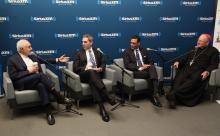
Is religion the cause of so much of the violence racking today’s world? Or is faith just one of many factors? Or collateral damage?
Those are tough questions, the kind that are usually posed to religious leaders, not by religious leaders.
But Cardinal Timothy Dolan wanted to switch things up on his weekly radio show, so he invited a minister, a rabbi, and an imam to tackle that issue. What sounds like the opening line of a joke was actually an in-depth discussion of “the rise of religious intolerance.”
“I don’t know if there would be anything more pertinent today, or more timely today, than religious harmony, or the lack thereof,” Dolan, the Roman Catholic archbishop of New York, said March 31 in opening a special edition of his program on the Catholic Channel of the SiriusXM network.
“The elephant in the room is that today, whether we like it or not, religion is often the cause of scandal,” he said.
“Religion is supposed to be an overwhelmingly positive force that brings people together, that increases love and understanding, human progress and human enlightenment.”
But many people today — believers and nonbelievers alike — see religion as the opposite, he said, and “that keeps the four of us up at night.”

In a world surging with anti-Semitism, Islamophobia, and the persecution of Christians, a Muslim is soon to portray Jesus in a film called Killing Jesus. Based on Bill O’Reilly and Martin Dugard’s bestselling book of the same name, the film seeks to capture the human dynamics and political milieu around the controversial death of Jesus of Nazareth.
Haaz Sleiman, a Lebanese-born American Muslim, was chosen to play the lead as the Jesus character. His selection makes him virtually the first actor of Middle Eastern descent to ever play the role in any mainstream film.
While National Geographic’s attempt at authenticity should be celebrated, the casting of Sleiman has, instead, stirred quite the controversy.
Imagine — in a context where religious tribalism is growing fiercer, a Muslim is embodying the role of a Palestinian Jew and central figure to Christianity. Is this a heretical impossibility or is this a picture of something beautiful?
On Tuesday, I sat down with Haaz to explore the uniqueness of this moment in his career and how the experience of embodying the life and teachings of Jesus has left him forever changed.
What immediately stood out is the grace with which he is handling the criticism from Jews, Christians, and Muslims alike. Rather than worrying about the controversy, Sleiman feels lucky to have had the opportunity. For him, it was the “ultimate experience as an actor” as he had been “heavily shaped” by Jesus during his childhood. Growing up in a Muslim home, he was taught to revere Jesus as the prophet equal to Mohammed who had come to reveal the beauty and potential of humanity. To play this role gave him a “once-in-a-lifetime opportunity” to “become the character that he truly believes in.”


I’M PRIVILEGED to be part of a program called the Prime Movers Fellowship, a circle of mainly younger-generation social change agents launched by Ambassador Swanee Hunt and her late husband, Charles Ansbacher. In December, the Prime Movers had a retreat with the Council of Elders, an inspiring group of civil rights era activists. Those two days contained some of the most profound conversations I’ve been part of in 10 years.
Rev. Joyce Johnson facilitated masterfully, opening sessions with prayer and sacred song. Rev. John Fife spoke about launching the Sanctuary movement through churches. Rabbi Art Waskow connected the theme of the Eric Garner killing (“I can’t breathe”) with the climate challenge (“We can’t breathe”).
Rev. Nelson Johnson of the Beloved Community Center told a story about driving into the North Carolina mountains to try to convince a white supremacist to cancel a Ku Klux Klan rally in Greensboro. “I was driving alone,” he explained, “and halfway up the mountain I started to get a little scared. So I stopped my car and got down on my knees to pray. I felt God tell me I was doing something necessary, and I felt my courage return.” He got back into his car and drove on to the meeting.
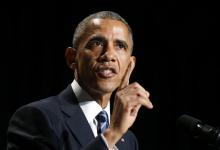
President Obama on Feb. 5 called for an emphasis on what is just about the world’s religions as a way to counter the ways faith has been distorted across the globe.
“We see faith driving us to do right,” he said to more than 3,500 people attending the annual National Prayer Breakfast. “But we also see faith being twisted and distorted, used as a wedge — or worse, sometimes used as a weapon.”
He urged believers of all faiths to practice humility, support church-state separation and adhere to the Golden Rule as ways to keep religion in its proper context.
“As people of faith, we are summoned to push back against those who try to distort our religion — any religion — for their own nihilistic ends,” Obama said.
“Here at home and around the world we will constantly reaffirm that fundamental freedom: freedom of religion, the right to practice our faith how we choose, to change our faith if we choose, to practice no faith at all if we choose, and to do so free of persecution and fear and discrimination.”
Fr. Nabil Haddad is a passionate and energetic man. As a Melkite Catholic priest and dean of Old Cathedral in Amman, Jordan, he is especially passionate about fostering peace and reconciliation between Christians and Muslims. This work keeps him very busy, as he travels often to bring his message of peace as far and wide as possible.
The day before we met, Fr. Nabil announced at a press conference a new initiative called Karama. Karama is the Arabic word for dignity. He stressed the importance of coexistence between the Abrahamic faiths and how this can be achieved through education focusing on human dignity and by talking about citizenship. Fr. Nabil said this approach is very successful in reaching the hearts and minds of the Muslim community.
“Do not make the religion of Islam the problem,” he said. “Instead use our vibrant witness – that is what is lacking in other societies.”

A friend mentioned that he likes my blogs dealing with love and compassion and other themes without getting into religion specifically. He said that the mention of God can make things uncomfortable.
My reaction: I know exactly where he’s coming from.
The word “God” has become such a loaded term. We’ve made it that way; God hasn’t done it. And the truth is, I’ve found myself shying away from using the word at times because I’m aware it’s an immediate turnoff to some people. They have the same sort of visceral reaction that we get when we see one of those political attack ads come onto our TV set.
We want to reach for the remote and change the channel.
One of the reasons I started writing blogs was to try to strip away some of the nonsense we’ve attached to the name. And there is so much nonsense. You know what I mean:
That God loves me more than you. God approves of me and those who are like me, but not you and those who are like you. God likes my religion and my way of life, but not yours. God is on my side in any disagreement. God approves of hatred and judgment and killing. God promotes crusades and inquisitions and holy wars.
So much …



A new institute in Jerusalem has been awarded $2.2 million to help Christians and Jews study Jewish texts, launching what’s being billed as a new kind of Jewish-Christian cooperation.
The Herzl Institute was awarded what’s being called the first ever multimillion-dollar grant in Jewish theology by the U.S-based Templeton Foundation, a philanthropic organization that has focused much of its giving on science-related projects. The Herzl Institute is a research institute that focuses on the development of Jewish ideas in fields like philosophy and history.
The institute is named for Theodor Herzl, considered the father of modern political Zionism, ideas that have found much support from conservative and evangelical Christians in the U.S.
Jewish and Christian collaboration has often been relegated to the political level, said Herzl President Yoram Hazony. The partnership reflects a new kind of engagement between Christians and Jews, he said.
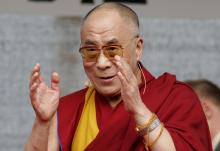
Historically, Christianity hasn’t been very open to the idea of being influenced by other religions. In the early days of the faith, we borrowed from Hellenism, Zoroastrianism, Gnosticism, Judaism and various “pagan” religions, repurposing their symbols to mean something new. Following the adoption of Christianity as the official religion of the Roman Empire, we focused more on converting others to our faith, or at least denigrating the legitimacy of other faiths to establish ours as superior.
Oh, but times, they are a’changin.’
Our numbers are down, our influence continues to wane, and we’re struggling with what I call in “postChristian” both an identity crisis and a credibility crisis. The good news is that, in this newly humbled state, lies a glimmer of opportunity. Not the kind we’ve had previously, to once again dominate the cultural landscape. That time has passed. Rather, as more of us within the Christian faith take less for granted, we’re asking harder questions:
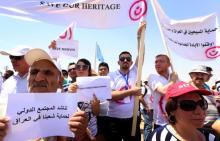
When I first saw Americans joining in solidarity with Iraqi Christians through the #WeAreN hashtag and protest campaign, I was encouraged. Our team at Preemptive Love Coalition had been sounding the alarm about the targeted persecution of minorities in Iraq through private emails and social media messages for weeks, in between making urgent appeals in our effort to provide lifesaving heart surgeries for children amid the violence.
Most of our efforts were largely unsuccessful before the “Islamic State” gave Mosul’s Christians an ultimatum to (1) convert to Islam; (2) pay a submission tax; or (3) “face the sword.”
After Islamist militants began marking the homes of Christians in red paint with the Arabic letter “N” (Nazarene) for extermination or expropriation, we tried again to use our proximity to the problem in Iraq to provoke our friends in America to pay attention by tagging a photo “#WeAreN,” in which I had symbolically marked myself with an Arabic “N.”
But it was not strictly an act of solidarity with Iraqi Christians. We had the targeting of Turkmen, Yezidi, Shabak, and even Sunni Muslims in view, as well. #WeAreN was more about the marking of Christians; less about the marking of Christians.
Muslims and minorities across Iraq immediately sensed the gravity of the tactics deployed by the Islamic State: if one group is marked, we are all marked. If we stand by in silence today while others are marked for extinction, our time will come, and there will be no one left to stand for us.
In response, Muslims across Iraq joined together in protest, prayer, and viral photographs saying “We are Iraqi. We are Christians.”

THE VIOLENCE AND kidnappings in Nigeria are more than a religious conflict: They are a political manipulation of religion.
Before the 2011 Nigerian election, northern politicians (who are mostly Muslims) threatened to make the country ungovernable if Goodluck Jonathan, a Christian from the south, became president. Jonathan was vice-president for Umaru Musa Yar’Adua, a Muslim from the north, who died before completing his eight-year term. Jonathan assumed power after Yar’Adua’s death, as is allowed by the constitution. However, northern Muslims claimed that since Yar’Adua did not finish his term, they should be allowed to place someone of their own choosing in power. Jonathan’s refusal angered the north.
In response, the Muslim terrorist organization Boko Haram began intensifying its attack on Jonathan’s rule in order to discredit his presidency and his pursuit of the 2015 election. If Boko Haram succeeds in pushing Jonathan out, southern militia groups are likely to commence their own violent campaign. These terrorists are trying to manipulate people by making them think that it is a religious fight, when in reality it is about political power.
People, however, are beginning to reject the violence. In April, as the world is well aware, Boko Haram kidnapped more than 200 schoolgirls from Chibok, a community that is said to be about 90 percent Christian. The outcry of rage and pain about this incident transcended religious lines. In a May market bombing in the city of Jos, both Christians and Muslims lost their lives. After the bombings, Muslims and Christians on the streets of Jos tried to work together in finding a way through the situation. People no longer want to fight and are starting to value peacebuilding and interfaith efforts. This is a sign of hope.
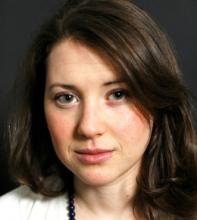
Just because interfaith, interracial, and varied ethnic groups share a common cause doesn’t mean a diverse coalition can hang together.
It often takes prayer. And not just a “Bless this group, Amen,” invocation.
A new study by three sociologists finds that three out of four interfaith civic coalitions turn to what the sociologists have dubbed “bridging prayer” — interactive, participatory, and often innovative prayers and rituals that highlight their shared identity as people of faith.